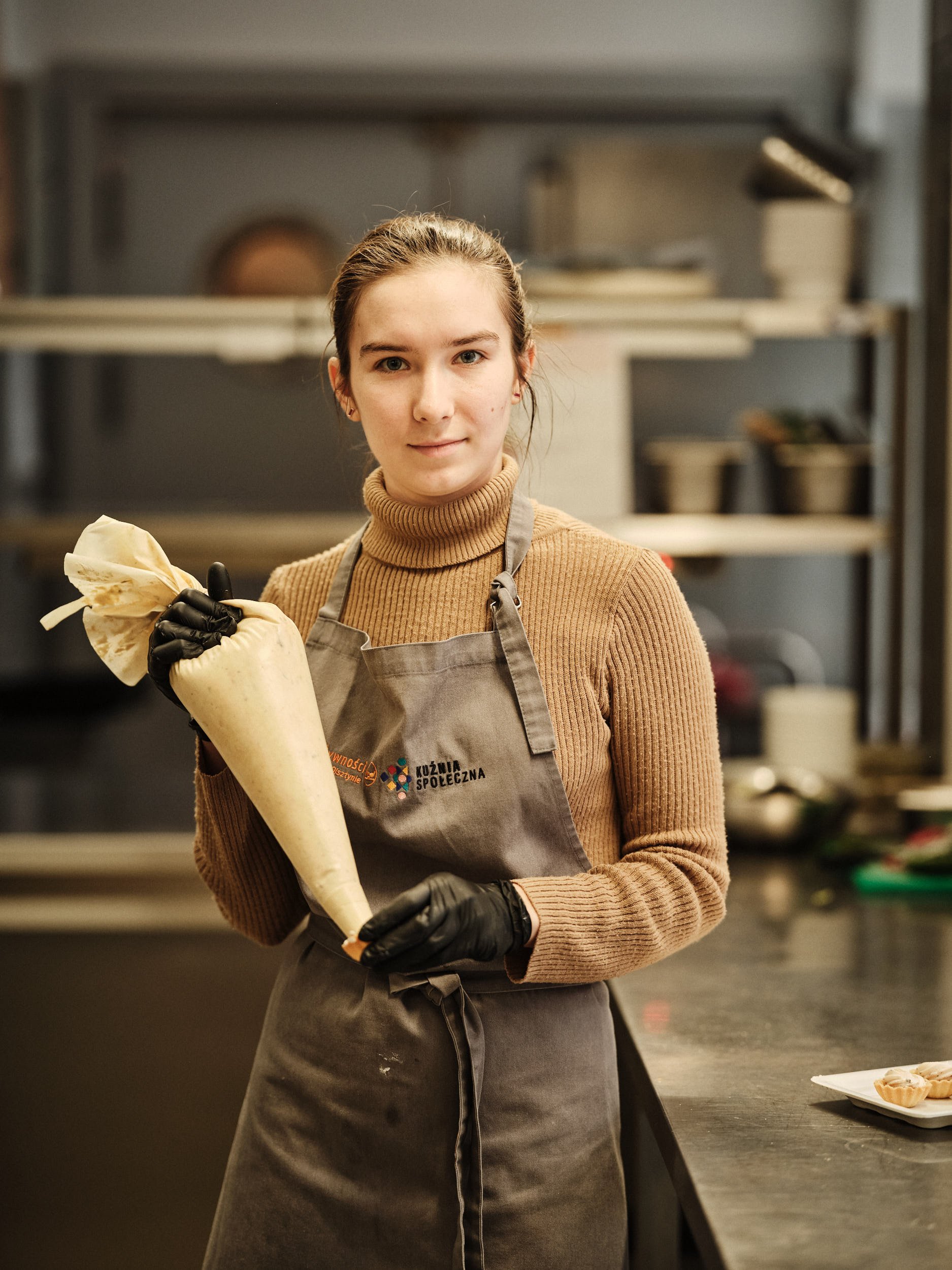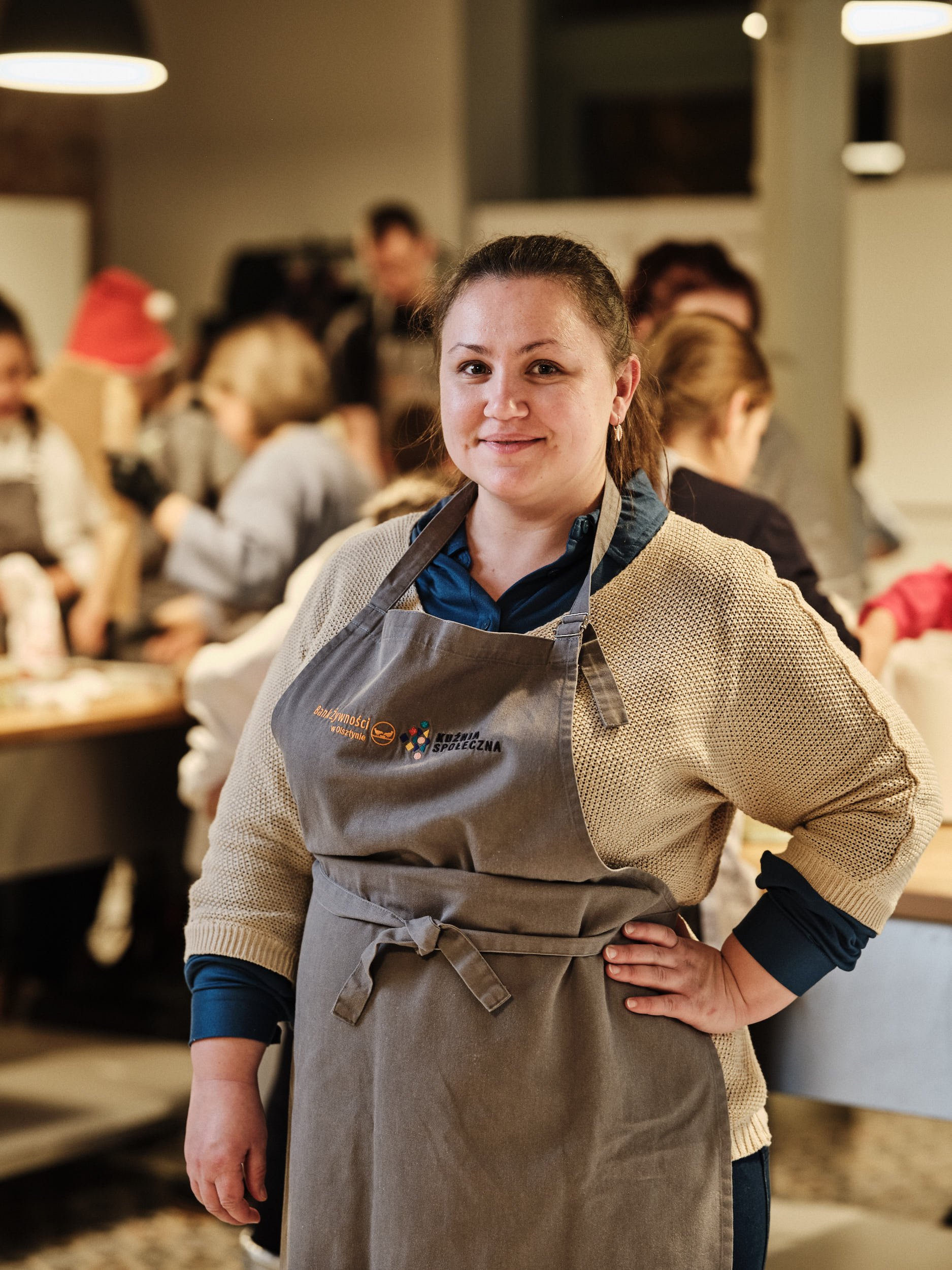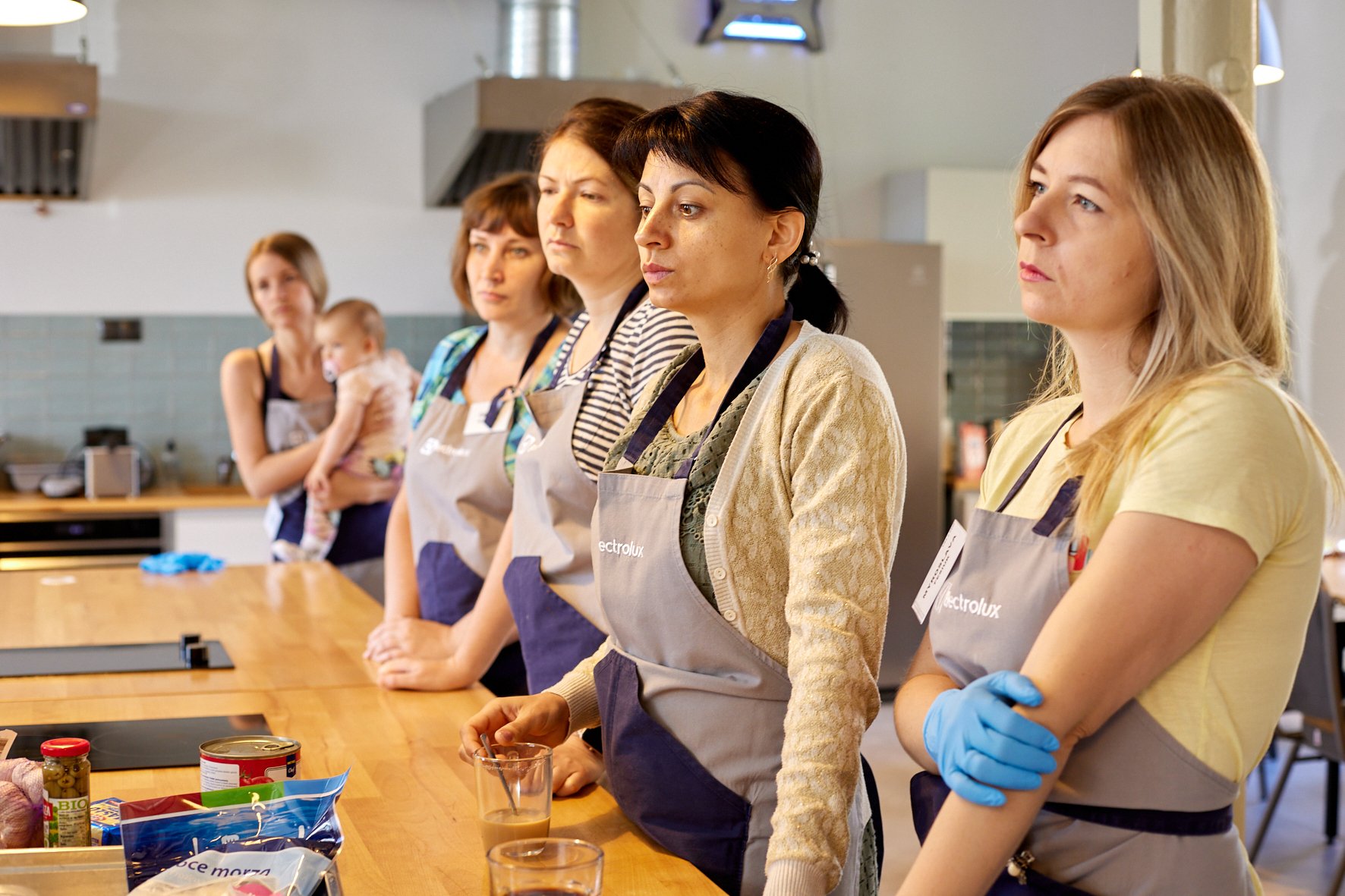This past February marks two years since Russia invaded Ukraine in 2022.
Em fevereiro de 2024, estima-se que 3,7 milhões de pessoas ainda estão deslocadas dentro das fronteiras da Ucrânia, e 6,5 milhões de refugiados estão em países como Polônia e Romênia.
A realidade é que, embora já tenham se passado dois anos desde o início da crise, milhões de refugiados na região ainda precisam de apoio para encontrar um trabalho digno que lhes permita alimentar suas famílias.
“Most refugees live outside their countries for an average of 10–26 years. It’s a lifetime for some people, not just a short-term proposition. By supporting businesses prioritizing refugees’ financial autonomy, we are working to promote resilience, self-sufficiency, and long-term economic growth in communities affected by displacement.”
Empresa de desenvolvimento de software sediada na Polônia Nebucode apoia refugiados para garantir empregos de qualidade no setor de TI.
Desde o lançamento da NESsT Refugee Employment Initiative (REI), há um ano e meio, investimos em 9 empresas de impacto na Polônia e na Romênia que ajudam os refugiados a desenvolver habilidades transferíveis e encontrar empregos. Durante seu tempo na REI, essas empresas criaram 642 empregos de qualidade para os refugiados.
Outra meta da NESsT Refugee Employment Initiative é garantir que os refugiados que buscam um trabalho decente tenham o apoio profissional e psicológico de que precisam para acessar, manter e realizar esses trabalhos. Desde o início da iniciativa, 1.736 refugiados obtiveram acesso a aulas de idiomas e treinamento técnico nas áreas de TI, catering e vendas, entre outras. E mais de 5.668 refugiados e seus familiares receberam serviços adicionais, como apoio à saúde mental e cuidados infantis.
REI enterprise Box Elyte – manufacturer of eco-friendly cardboard boxes – hires refugees and migrants, providing them with access to accommodation, transport, and training courses.
Anastasiia and Nadiia are two women who left Ukraine with their families in search of safety and stability. They both received career support at NESsT Refugee Employment Initiative enterprise, Olsztyn Food Bank, and secured work opportunities in Poland.
Approximately 90% of the people fleeing the war in Ukraine are women and children. When the war broke out, NESsT Refugee Employment Initiative enterprise Olsztyn Food Bank (OFB) focused its efforts on supporting refugee women to find jobs.
Uma dessas mulheres é Anastasiia, uma estudante de 20 anos de Zaporizhzhia, na Ucrânia. No início da guerra, ela e sua família inicialmente buscaram refúgio no porão de sua casa para escapar dos bombardeios. No entanto, Anastasiia acabou fugindo da Ucrânia com sua mãe e sua irmã de 10 anos. Nos primeiros três meses, elas moraram com uma família polonesa, e o idioma foi um grande desafio.
Anastasiia conseguiu emprego no restaurante Kuźnia Społeczna, na Polônia.
After one year in Poland, Anastasiia participated in an 80-hour general culinary workshop hosted by Olsztyn Food Bank, a non-profit entity based in Poland that aims to save food waste and bring inclusive food solutions to the local community. One of the enterprise’s main activities is running professional culinary courses for women from marginalized groups, including refugees and migrants.
Following the workshop, Anastasiia was offered a kitchen job at the Kuźnia Społeczna Restaurant – a business line of Olsztyn Food Bank. Anastasiia completed a 3-month trial period and secured a permanent contract. She loves cooking and is learning Polish from her work at the restaurant. She shares that she wishes to remain in Poland.
In addition to providing access to training and technical knowledge, Olsztyn Food Bank supports women to find quality, flexible jobs in the hospitality and catering sectors, especially mothers and those balancing caregiving responsibilities. The social enterprise also ensures women have childcare during classes, in addition to psychological support and language courses, and helps with CV creation and job matching.
One year into the NESsT Refugee Employment Initiative, OFB has connected 57 refugee women with the open job market, employing 2 of them and placing 55 in other regional businesses in the hotel, restaurant, and catering industry. Additionally, the enterprise provided job readiness training to 49 refugee women.
“When people can see themselves growing in their jobs, they are inclined to explore positions that offer skill development and can help them propel toward their career goals.”
Nadiia, uma refugiada ucraniana de 30 anos que vive na Polônia há dois anos, fugiu de Zaporizhzhia, na Ucrânia, para buscar segurança na Polônia com sua filha.
Na Ucrânia, Nadiia organizava eventos e tinha paixão por confeitaria. Depois de deixar seu país, ela ficou feliz em saber sobre o programa de treinamento culinário da OFB.
Nadiia viveu na Polônia por dois anos e participou de várias oficinas culinárias da OFB.
Nadiia participou de quatro workshops da OFB sobre confeitaria e habilidades culinárias em geral, e sonha em abrir uma cafeteria ou confeitaria no futuro. Além de apoiar a OFB na preparação de comboios de ajuda para os ucranianos afetados pela guerra, Nadiia trabalha na comunidade local em cargos com horários flexíveis que lhe permitem cuidar de sua filha.
“During my time at [Olsztyn Food Bank] I learned a lot of information that helped me adapt and integrate [into the local community], and I also took part in language classes. It felt like a warm, welcoming atmosphere where the manager and colleagues cared for us, and even the office lady spoke to us like old friends. It's comforting to feel at home and safe in such an environment,” Nadiia shared.
The NESsT team regularly engages with the refugee and migrant communities we support to gain a deeper understanding of the challenges that they face in their daily lives.
We learned that one of the main challenges refugees experience in their host countries is the language barrier, particularly in Romania, where the local language differs significantly from Ukrainian.
What’s more, as a large number of the refugee community is made up of women and children, a lack of childcare and flexible employment opportunities prevents those with family responsibilities from securing work.
Additionally, skills mismatch is widespread. Many refugees with technical skills and formal training voice difficulties in finding job opportunities aligned with their experience and skill sets. In turn, people seeking work in rapidly changing sectors like the digital sector are finding that upskilling training programs are essential to securing work that can be done remotely if they decide to return to their home country.
A NESsT Refugee Employment Initiative ainda está aceitando inscrições de empresas sociais de alto impacto que criam empregos de qualidade para comunidades marginalizadas, incluindo refugiados como Anastasiia e Nadiia. Para obter mais informações e se candidatar, acesse este link: https://www.nesst.org/refugee-employment-initiative










